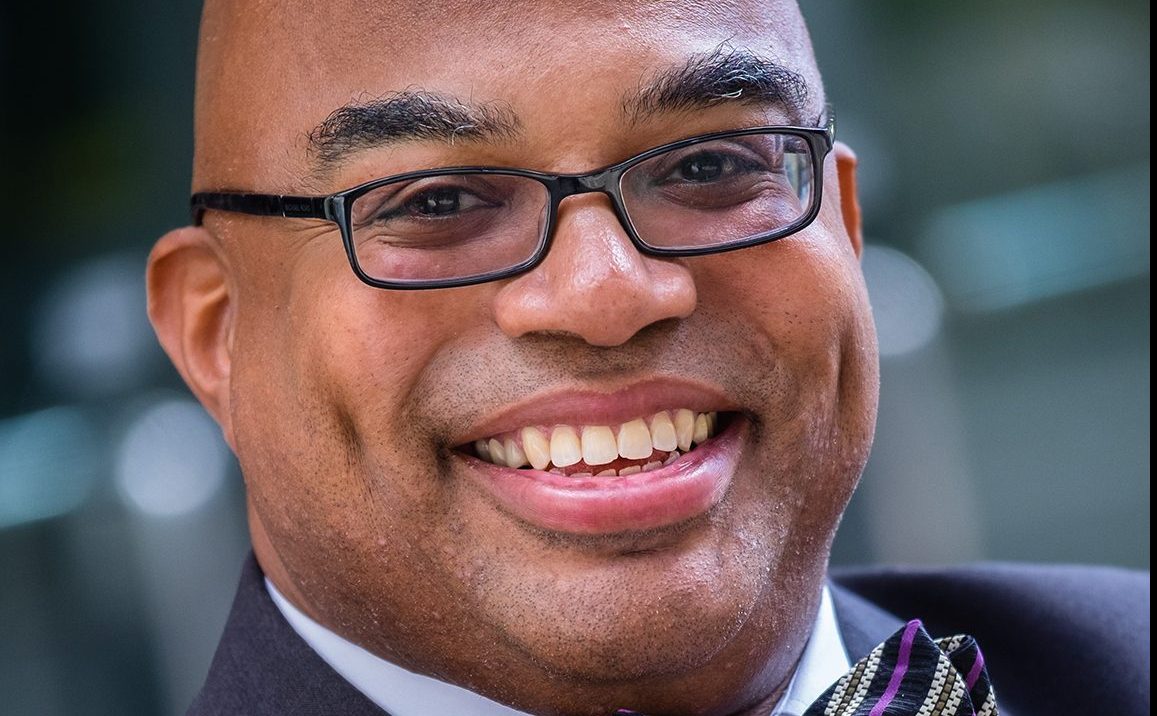Noted journalist, author, comic strip creator and University of Mississippi alumni Jesse J. Holland reflected on his career during a recent interview with The Daily Mississippian.
Holland speaks of his time at Ole Miss fondly. He credits the journalism department with giving him the necessary experience for his career.
“The biggest impact that Ole Miss had on my journalism career was allowing me to actually have hands-on experience as a journalist through the opportunities that student media provided to students,” Holland said.
During his time here, he climbed the ladder at the DM, going from reporter to editor-in-chief. He was the second African American editor-in-chief of the DM.
“It was one of the best experiences of my life,” Holland said.

While editor-in-chief, Holland was a part of several significant changes. His team put together the first completely digital version of the DM.
He and his team worked in the basement of Farley, across from the university radio station. He remembered how they would witness the process from beginning to end — from brainstorming story ideas to watching the papers come off the printing press.
Holland said one of the most significant things he did as editor-in-chief was canceling all the running comics. One of his main goals was to bring in more students to work on the DM. After canceling the running comics, Holland held an open call for student-created comic strips.
Holland also began running his own comic strip. He and a few of his friends decided to create a satirical strip reflecting what they saw on campus. “The Hippie and the Black Guy” was created. This strip starred two stereotypical versions of characters Holland and his friends frequently interacted with on campus.
Outside of the DM, Holland was a part of change across campus. He was one of the founding members of the University of Mississippi chapter of the National Association of Black Journalists. Other co-founders include Lee Eric Smith, Tim Ivy, Dedra Jackson, Jerry Lacy and Connie Williams. Many still work in Mississippi today. Ivy is now an integrated marketing communications professor at the University of Mississippi. Jackson is now the Interim Dean of the Tupelo Writing Center.
“The National Association of Black Journalists is one of the most vital organizations for black journalists in the United States, if not the most vital organization for black journalists in the United States,” Holland said.
He and his co-founders wanted to extend the association’s impact onto the university campus.
“We wanted to find a way to duplicate and associate ourselves with the work that NABJ was doing,” Holland said.
He is pleased to know that Ole Miss’s chapter of the NABJ is still active today. He recently spoke to the current members during a virtual meeting.
“Hopefully it’s providing them the support and the necessary help that it did for us when I was in college at Ole Miss,” Holland said.
Holland said he has always felt extremely connected to the University of Mississippi. His mother got her graduate degree from the university, and two of his three siblings completed their undergraduate studies here.
In 2008, Holland became the first African American to cover the Supreme Court. He covered the Supreme Court for five years, beginning just after Obama was elected and leaving just after the Affordable Care Act took effect.
“Covering the Supreme Court was one of the greatest honors of my life,” Holland said.
This honor, according to Holland, comes from knowing covering the Supreme Court is one of the most coveted jobs as a political journalist.
“To this day, I enjoy thinking about the time that I was there, and still talking to people who work at the Court,’ Holland said.
During his 25 years working for the Associated Press, Holland also wrote for the national race and ethnicity reporting team.
Following his time at the Supreme Court, Holland has held a long career as a writer—both of books and comic strips. His books include “Black Men Built the Capitol: Discovering African American History in and Around Washington, D.C.,” “The Invisibles: The Untold Story of African American Slaves in the White House” and “Black Panther: Who is the Black Panther?”
His love of comics connects back to his time at the university. He would often take trips to Memphis to get the newest editions. Little did he know, “The Hippie and the Black Guy” would not be his only published comic.
Over the course of the past two years, Holland has been working with DC Comics to produce his own strips. One of his recent publications is issue three of DC Comics’ “Superman: Red and Blue.” The strip depicts Clark Kent and his everyday life as a journalist as he deals with stories and deadlines.
Holland has also recently created “Heritage,” a strip inspired by his childhood on a Mississippi farm. “Heritage” is chapter two of DC Comics’ “Represent!” series.
Holland’s road leads him back to his roots: Ole Miss. On Feb. 23, he visited the School of Journalism and New Media as part of the search for a new dean. Holland said he is honored to be considered.
“I’m hoping that the university makes a decision for a new dean that’s the best for all of the students,” he said.
Visiting campus is an activity that Holland frequently enjoys. He makes it a habit to catch a football or basketball game or simply walk around whenever he comes back to Holly Springs.
“I’m always excited to come back to Ole Miss,” Holland said.
















